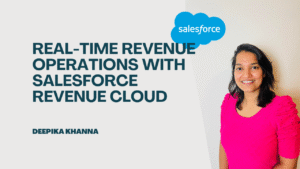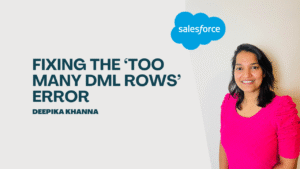If you are a Salesforce user then you might have come across the terms like Salesforce licensing and Salesforce licensing types might. While in a general sense, it sounds like a license for the use of software as a service. However, what is the exact meaning of that, and who needs to get that license?
Since you are here you might surely be searching for the answers to these questions. We won’t disappoint you as we would be discussing the Salesforce licensing and Salesforce licensing types in depth. But before getting into that we would take a look at some of the basic points that need to be cleared.
Salesforce licensing types: Explained
Salesforce licensing refers to the various types of licenses offered by Salesforce that allow users to access and use the features of the Salesforce platform. It provides businesses with different levels of access to Salesforce functionality, ranging from basic customer relationship management (CRM) tools to advanced features like custom application development and enterprise-wide collaboration tools.
There are a number of licenses that come under the Salesforce licensing types. Now, we would check the various Salesforce licensing types and see what they offer.
Salesforce licensing types: What are the various kinds of licenses
As we know that Salesforce is a powerful customer relationship management (CRM) tool that helps businesses manage their sales, marketing, and customer service activities. Now, to access the full range of Salesforce features, businesses need to purchase licenses. Salesforce offers a range of licensing options that cater to different business needs and budgets.
Here is a detailed overview of Salesforce licensing types:
- Salesforce Essentials: This is the most basic version of Salesforce and is designed for small businesses with up to 10 users. The license provides access to basic CRM functionality, including lead and opportunity management, contact management, and task management.
- Salesforce Professional: It is a mid-level option that provides more advanced features than Salesforce Essentials. It is suitable for small to medium-sized businesses with up to 50 users. The license includes features like lead assignment, advanced reporting, forecasting, and integration with Outlook and Gmail.
- Salesforce Enterprise: Enterprise version of Salesforce is suitable for larger businesses with up to several hundred users. It provides more advanced features than the Professional edition, including workflow automation, custom app development, and advanced analytics.
- Salesforce Unlimited: This is the most comprehensive version of Salesforce, offering unlimited access to all Salesforce features. It is designed for large enterprises with thousands of users and provides features like unlimited customizations, advanced analytics, and enterprise-wide collaboration tools.
- Salesforce Lightning Platform: This is a platform-only license that provides access to the Salesforce platform for developers and IT professionals to build and deploy custom applications.
- Salesforce Community Cloud: This is a license that allows businesses to create custom communities for their customers, partners, and employees. It provides features like collaboration tools, customer self-service, and partner relationship management.
- Salesforce Marketing Cloud: This is a license that provides marketing automation tools for businesses to create and manage personalized customer journeys across email, social media, and mobile devices.
- Salesforce Service Cloud: This is a license that provides tools for businesses to manage customer service activities across multiple channels, including phone, email, chat, and social media.
- Salesforce Sales Cloud: This is a license that provides tools for businesses to manage sales activities, including lead and opportunity management, forecasting, and collaboration tools.
In addition to these Salesforce licensing types, Salesforce also offers add-on licenses for specific features, such as the Salesforce CPQ (Configure, Price, Quote) add-on for businesses that require advanced pricing and quoting capabilities.
It’s important to note that Salesforce licensing types can be further customized by adding different feature sets, such as Sales Cloud or Service Cloud, to better fit the specific needs of a business. Each license type also comes with different pricing options, so businesses should evaluate their needs and budget to choose the right licensing type for their organization.
Salesforce licensing types: Is it useful
Obtaining Salesforce licensing can be very useful for businesses that want to manage their sales, marketing, and customer service activities more effectively. Salesforce is a powerful customer relationship management (CRM) tool that provides businesses with a range of features to manage their customer interactions and improve their overall customer experience.
Some of the benefits of obtaining Salesforce licensing include:
- Improved data management: Salesforce helps businesses manage their customer data in a centralized location, providing a single source of truth for customer interactions and activities. This can help businesses make more informed decisions and improve their overall data accuracy and quality.
- Increased sales productivity: Salesforce provides sales teams with tools to manage their leads, opportunities, and pipelines more effectively, streamlining the sales process and improving overall productivity.
- Better customer service: Salesforce provides tools for businesses to manage customer service activities across multiple channels, including phone, email, chat, and social media, improving the overall customer experience and increasing customer satisfaction.
- Customization: Salesforce provides businesses with the ability to customize their Salesforce experience based on their specific needs, allowing them to tailor their CRM tools to their unique business requirements.
- Collaboration: Salesforce provides collaboration tools that allow teams to work together more effectively, increasing productivity and improving communication.
However, it’s important to note that obtaining Salesforce licensing can be costly, and businesses should carefully evaluate their needs and budget before making a decision. It’s also important to invest in proper training and support to ensure that users can fully leverage the features and functionality of Salesforce.






